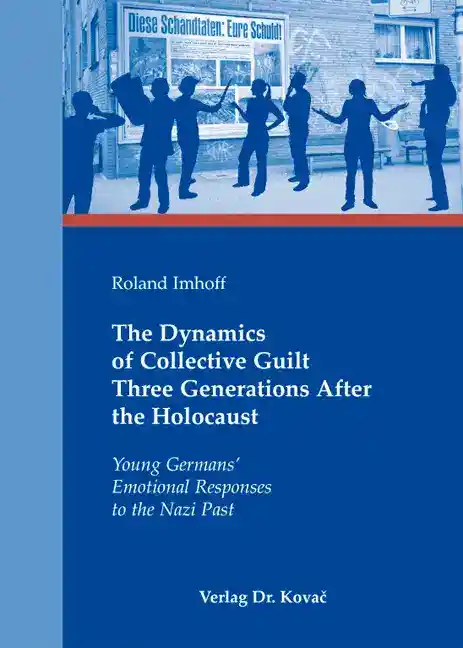Roland ImhoffThe Dynamics of Collective Guilt Three Generations after the Holocaust
Young Germans‘ Emotional Experiences in Response to the Nazi Past
- in englischer Sprache -
Schriften zur Sozialpsychologie, volume 23
Hamburg 2010, 170 pages
ISBN 978-3-8300-5289-0 (print) |ISBN 978-3-339-05289-6 (eBook)
About this book deutschenglish
In his seminal article "Guilt and Defense," Adorno (1955) attributed antisemitic sentiments voiced by participants of his study to a paradox projection. Because they experienced latent feelings of guilt, his respondents tried to use (secondarily) antisemitic defense mechanisms like rationalization, projection, and displacement. This idea of expressing antisemitism not despite but because of Auschwitz has remained highly influential in contemporary theorizing about post-Holocaust antisemitism in Germany. The research presented here is the first systematic effort to empirically and quantitatively test three central assumptions of Adorno's theory. Does the supposedly central defense mechanism of demanding historical closure on the Nazi past indeed attenuate feelings (or expressions) of group-based guilt? Is expressing group-based guilt indeed associated with prosocial attitudes, less prejudice, and an interest in positive intergroup contact with the former victim group? The final question concerns the core assumption of theories on secondary antisemitism: Does the portrayal of surviving Jews as continuing to suffer as a result of their previous victimization fuel antisemitism against them and, if so, are there boundary conditions to this effect?
This book combines basic assumptions of antisemitism research in the humanities with psychological theories and methods, thereby building a bridge between these often disparate disciplines. The results, uncovered more than 50 years after Adorno posited his theory, provide empirical support for many of his assumptions. However, no support was found for the idea that collective guilt motivates to overcome intergroup boundaries and engage in intergroup contact. The present findings thus caution against an instrumental use of guilt-evoking reminders of past episodes to improve intergroup relations.
Keywords
AuschwitzBedauernHolocaustImpliziter AntisemitismusKollektivschuldNationalsozialismusPsychologieReparationenSchlussstrichSchuldabwehrSchuldabwehrantisemitismusSekundärer AntisemitismusTheodor W. AdornoVergangenheitsbewältigungIhr Werk im Verlag Dr. Kovač

Möchten Sie Ihre wissenschaftliche Arbeit publizieren? Erfahren Sie mehr über unsere günstigen Konditionen und unseren Service für Autorinnen und Autoren.
